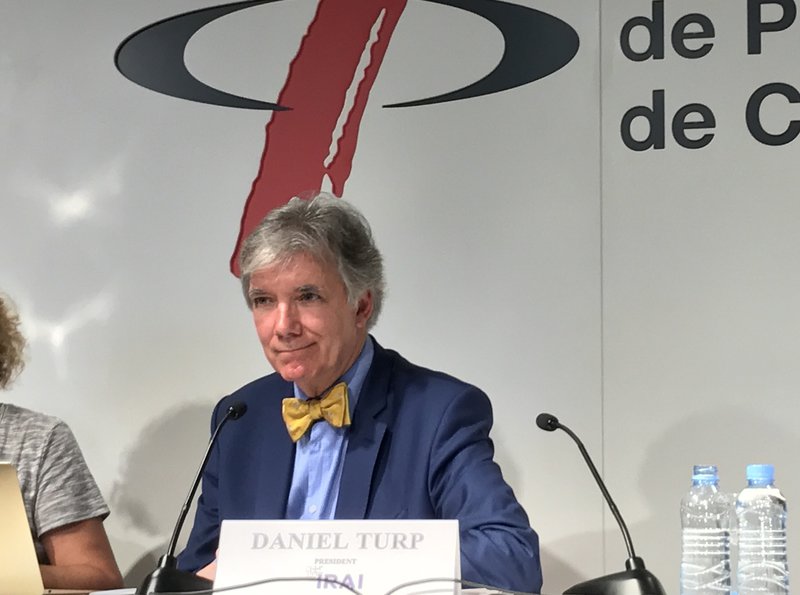1-O “legally legitimate”
IRAI president says EU has practice of admitting states that have organised referendums deemed “illegal” in the countries they are splitting from
“The right to decide is so fundamental that it should not be repressed by the police or armies.” With these words the president of the Research Institute on Self-Determination of Peoples and National Independence (IRAI), Daniel Turp, yesterday reminded Spanish prime minister Mariano Rajoy that he would do well to follow the example of Canada and the United Kingdom in “accepting the idea of a referendum” instead of sending the Civil Guard and other police forces in pursuit of ballots and ballot papers. Turp was talking at the presentation of a study on October 1 by four international experts on referendums and self-determination.
The analysts have jointly concluded that the law regulating 1-O passed by the Catalan Parliament last week “in essence respects international standards for the organisation of referendums.” The experts stressed that the EU has the habit of admitting new members to the community that have become independent through referendums considered “illegal” in their countries. Turp mentioned the cases of Slovenia and the Baltic countries.
The IRAI is an impartial non-profit organisation founded last spring. Those who have put their name to the study are internationally renowned scholars Nina Caspersen (University of York, UK), Matt Qvortrup (University of Coventry, UK) and Yanina Welp (University of Zurich, Switzerland), as well as Turp, who is a Professor of international and constitutional law at the University of Montreal. Their view is that Catalonia has “all the motives and legal legitimacy to remind [Spain] that several states have chosen to respect the democratic will of their peoples.”

